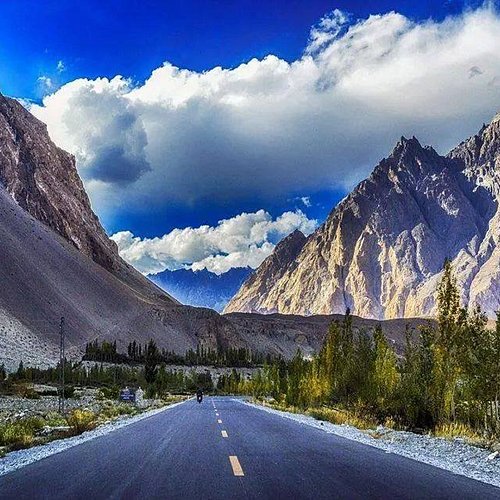Pakistan is generally safe for tourists, but like any destination, it’s important to take precautions and stay informed about specific regions. The safety situation can vary by region, and it’s crucial to be aware of local conditions before planning your trip. Here’s a breakdown of safety considerations for traveling to Pakistan:
1. Major Tourist Areas
- Northern Pakistan: Regions like Hunza Valley, Swat Valley, Skardu, Naran Kaghan, and Murree are considered safe and popular with tourists. These areas are generally peaceful, with welcoming locals and a thriving tourism infrastructure. Trekking, adventure sports, and sightseeing are popular activities here, and they are relatively safe.
- Islamabad: As the capital city, Islamabad is one of the safest cities in Pakistan. It has modern infrastructure, good public services, and is generally considered secure for tourists. The city is known for its cleanliness, green spaces, and landmarks like the Faisal Mosque, Daman-e-Koh, and Rawal Lake.
- Lahore: Lahore, the cultural heart of Pakistan, is relatively safe for tourists. It is home to many historical sites like the Badshahi Mosque, Lahore Fort, and Shalimar Gardens. The city has a vibrant atmosphere, with many parks, markets, and places to explore. However, like any large city, be mindful of your belongings in crowded places.
- Karachi: Karachi, Pakistan’s largest city, is a bustling metropolis with a mix of modern and historical attractions. While the city has made significant strides in improving security, it can still be more challenging for tourists due to concerns over street crime, traffic, and occasional political instability. Staying in well-known areas like Clifton, Korangi, or Karachi Marina Club is generally safe.
2. Regions to Exercise Caution
Certain regions in Pakistan are more sensitive and have fluctuating security situations due to political or military tensions. It’s important to check travel advisories before planning trips to these areas. Some of these regions include:
- Balochistan: This province has occasional security challenges due to political instability and separatist movements. Tourists should exercise caution and avoid areas like Quetta and certain border regions.
- Khyber Pakhtunkhwa (KP): Areas in the north-western regions, especially near the Afghanistan border, have been historically affected by militancy and conflict. Although places like Peshawar and Swat Valley are generally safe for tourists, some remote border areas might not be suitable for travelers.
- Azad Kashmir: While Muzaffarabad and areas near the Neelum Valley are considered relatively safe for tourists, the region is close to disputed areas near Indian-administered Kashmir. Political tensions can occasionally affect security in this region.
- Gilgit-Baltistan: Although the region is generally safe for tourists, it’s important to stay updated on local conditions. Some parts of the region, especially near the Karakoram Highway, are occasionally subject to landslides or road closures.
3. General Safety Tips
- Travel Advisory: Before visiting, it’s a good idea to check the travel advisories issued by your country’s government, such as the U.S. Department of State, UK Foreign and Commonwealth Office, or Canada’s Government Travel Advisory, to stay informed about any updates regarding safety.
- Local Laws and Customs: Be aware of local customs and laws, especially regarding religious practices, dress codes (modesty is expected, especially for women), and public behavior. Pakistan is an Islamic country, and respecting cultural norms is important.
- Road Safety: While major cities and tourist areas generally have good infrastructure, road safety can be a concern in more remote regions. Always opt for reputable transport services and check road conditions, especially if you’re traveling to mountain areas.
- Health and Vaccinations: Make sure to get any recommended vaccinations (such as Hepatitis A, Hepatitis B, Typhoid, and Malaria prophylaxis) before traveling. It’s also advisable to drink bottled water and take necessary precautions for food safety.
- Solo Travel: While Pakistan is safe for solo travelers, women traveling alone may face challenges depending on the region. It’s recommended for female tourists to dress conservatively and be cautious in remote or less developed areas. It’s often safer and more comfortable to travel with a group or a guide, especially in rural areas.
- Emergency Contacts: Always keep local emergency numbers handy (police, ambulance, etc.), and stay in touch with friends or family to keep them updated on your whereabouts.
4. Positive Experiences from Tourists
Many tourists visit Pakistan every year, especially to explore the mountains, culture, and historical sites. Pakistan is known for its warm hospitality, and travelers often have positive experiences with the friendly locals who are eager to show visitors their heritage and landscapes.
5. Conclusion
Pakistan is generally safe for tourists, especially if you stick to popular tourist destinations, take basic safety precautions, and avoid areas with political or security concerns. Like in any country, it’s important to stay informed, be respectful of local customs, and follow local laws. If you plan carefully and are aware of current conditions, you can have a safe and enriching experience in Pakistan.

